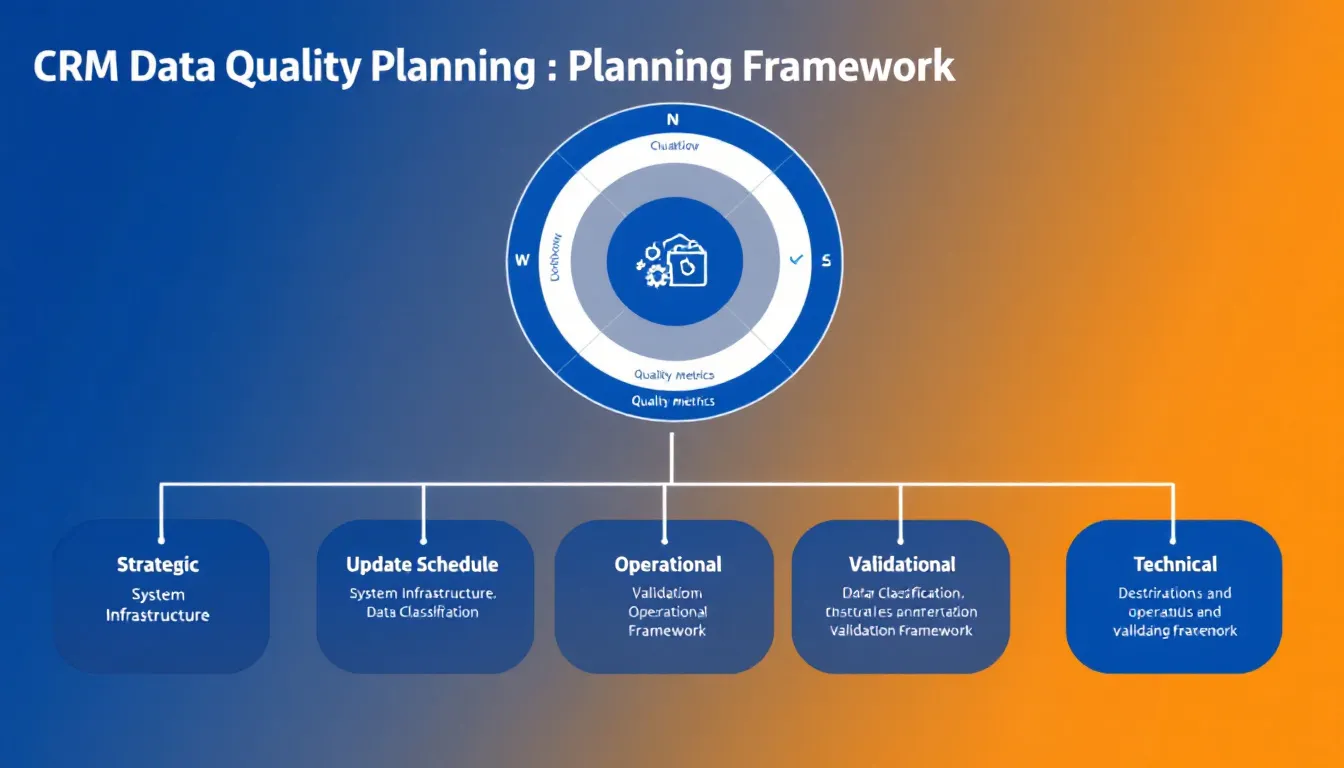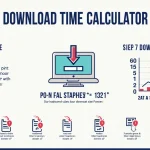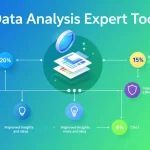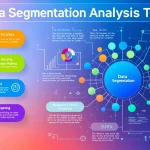Is this tool helpful?
How to Use the CRM Data Quality Planning Tool Effectively
To maximize the benefits of the CRM Data Quality Planning Tool, follow these step-by-step instructions for each field:
1. CRM System Field
Enter your current or planned CRM platform. Example inputs:
- Zoho CRM Enterprise Edition
- Custom-built PostgreSQL-based CRM solution
2. Key Data Types Field
List essential data categories requiring monitoring. Sample entries:
- Lead scoring metrics, customer service tickets, sales pipeline stages, product preferences, social media interactions
- Payment history, contract renewal dates, customer satisfaction scores, referral sources, marketing campaign responses
3. Quality Metrics Field
Define your data quality measurement parameters. Examples:
- Data accuracy percentage, duplicate entry rate, field completion ratio, data freshness index, validation success rate
- Response time metrics, customer profile completeness, data source reliability score, integration success rate
4. Update Frequency Field
Specify your desired data update schedule:
- Real-time for critical customer interactions
- Bi-weekly for marketing campaign metrics
5. Validation Rules Field
Detail your specific data validation requirements:
- Email format validation, phone number standardization, mandatory fields for high-value accounts
- Industry classification standards, revenue range verification, geographic data normalization
Understanding CRM Data Quality Planning
The CRM Data Quality Planning Tool is a comprehensive solution designed to help organizations establish and maintain high-quality customer relationship management data. It transforms raw requirements into actionable data quality strategies, ensuring your CRM system remains a reliable source of customer insights and business intelligence.
Core Components of Data Quality Planning
The tool addresses five critical aspects of CRM data management:
- System Infrastructure Alignment
- Data Type Classification
- Quality Metric Definition
- Update Schedule Optimization
- Validation Framework Development
Benefits of Using the CRM Data Quality Planning Tool
1. Strategic Advantages
- Enhanced decision-making through reliable data
- Improved customer satisfaction through accurate interactions
- Reduced operational costs from streamlined data management
- Better regulatory compliance through structured data governance
2. Operational Benefits
- Standardized data entry procedures
- Automated quality control mechanisms
- Consistent data validation processes
- Streamlined update protocols
3. Technical Advantages
- Reduced system redundancy
- Improved integration capabilities
- Enhanced data security measures
- Optimized storage utilization
Solving Common CRM Data Quality Challenges
Data Duplication Prevention
The tool helps establish robust duplicate detection rules by incorporating:
- Fuzzy matching algorithms
- Cross-field validation
- Merge rules hierarchy
Data Completeness Assurance
Implements systematic approaches for ensuring comprehensive data capture:
- Progressive profiling strategies
- Required field matrices
- Data enrichment workflows
Practical Applications and Use Cases
Example 1: B2B Sales Organization
A manufacturing company implemented the following data quality plan:
- CRM System: Salesforce Manufacturing Cloud
- Key Data Types: Account hierarchies, order history, product specifications
- Quality Metrics: 98% field completion rate, 24-hour update frequency
- Validation Rules: Industry-specific classification codes, corporate hierarchy verification
Example 2: Healthcare Provider Network
A medical services network established these parameters:
- CRM System: Epic Systems with custom modules
- Key Data Types: Patient history, appointment scheduling, insurance information
- Quality Metrics: 99.9% accuracy requirement, real-time updates
- Validation Rules: HIPAA compliance checks, insurance verification protocols
Frequently Asked Questions
What types of organizations can benefit from this tool?
Organizations of all sizes and industries can benefit, from small businesses to enterprise-level corporations, particularly those heavily reliant on customer data for operations and decision-making.
How does the tool support data governance initiatives?
The tool provides a structured framework for establishing data governance policies, including standardization protocols, quality metrics, and validation rules.
Can the tool integrate with existing CRM systems?
Yes, the tool is designed to work with any CRM system, providing system-agnostic recommendations and frameworks.
What are the best practices for implementation?
Start with critical data elements, establish clear ownership roles, implement gradually, and regularly review and adjust quality metrics based on business needs.
How often should data quality plans be reviewed?
Organizations should review their data quality plans quarterly, with comprehensive assessments annually or when significant business changes occur.
What role does automation play in data quality management?
Automation facilitates consistent data validation, standardization, and update processes, reducing manual effort and human error while improving efficiency.
Important Disclaimer
The calculations, results, and content provided by our tools are not guaranteed to be accurate, complete, or reliable. Users are responsible for verifying and interpreting the results. Our content and tools may contain errors, biases, or inconsistencies. We reserve the right to save inputs and outputs from our tools for the purposes of error debugging, bias identification, and performance improvement. External companies providing AI models used in our tools may also save and process data in accordance with their own policies. By using our tools, you consent to this data collection and processing. We reserve the right to limit the usage of our tools based on current usability factors. By using our tools, you acknowledge that you have read, understood, and agreed to this disclaimer. You accept the inherent risks and limitations associated with the use of our tools and services.







